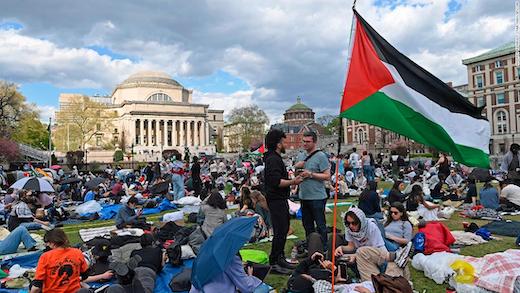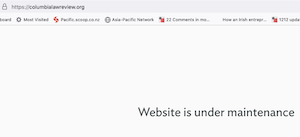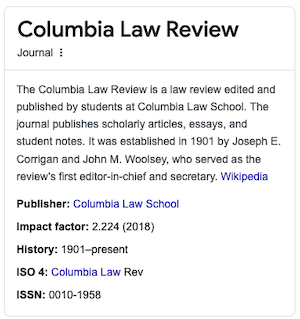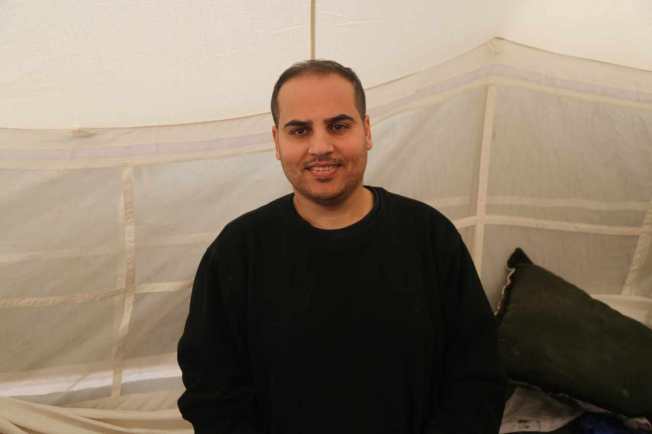It was given top billing, a near absurd show intended to rope in content on a global social media platform, thereby denying all outside Australia access to it. Because an Australian official had deemed a video too disturbing and offensive for Australians of ordinary sensibility (the standard remains opaquely absurd), the world’s citizenry were also to be barred from viewing it. It did not matter that those in the US, for instance, could readily digest the same, unabridged content, or that news networks in that country could readily broadcast the material in its entirety.
On April 16, Australia’s eSafety commissioner, Julie Inman Grant, smacked X (formerly known as Twitter) and Meta with legal notices to remove links to a video within 24 hours depicting what her office declared to be “gratuitous or offensive violence with a high degree of impact and detail”. The video featured a livestreamed church service at Sydney’s Assyrian Orthodox Christ the Good Shepherd Church, which was abruptly interrupted by a stabbing assault. The perpetrator was a 16-year-old youth. Two churchmen, Bishop Mar Mari Emmanuel and Rev. Isaac Royel, were injured.
X Corp’s erratic, truculent CEO thought differently about this overly generous extension of Australia’s Online Safety Act. Elon Musk found Inman Grant’s demand insensible, calling her a “censorship commissar” in her insistence on global content bans. While he was happy to acquiesce to restricting access to the video in Australia, the world was quite something else.
The issue wound its way to the Federal Court. On May 15, the Commissioner’s case received something of a sinking blow. Justice Geoffrey Kennett pondered the “potential consequences for orderly and amicable relations between nations, if a notice with the breath contended for were enforced”. It would, for instance, “be ignored or disparaged in other countries”. In the United States, no court would agree to enforce any relevant injunction requiring X Corp to take down the relevant URLs, numbering 65.
The judge acknowledged that the Online Safety Act covered “acts, omissions, matters and things outside Australia” but did not stipulate what “all reasonable steps” were in the context of removing material. “A clear expression of intention would be necessary to support a conclusion that Parliament intended to empower the Commissioner to issue removal notices with the effect for which she contends.” It followed that she had failed to establish “that compliance with the removal notice entails blocking access to the 65 URLs by all users of X Corp.”
The matter should have ended there, but the regulatory instinct of condescending officials is often obstinate. As proceedings continued through the month, more opposition manifested. On May 27, Justice Kennett granted orders permitting the Electronic Frontier Foundation and the Foundation for Individual Rights and Expression (FIRE) leave to intervene. The intervention, reasoned FIRE, sought “to focus the court’s attention on how a global takedown order would disregard the strong free speech protections of countries like the US and lend an air of legitimacy to repressive regimes’ efforts to assert control over online content everywhere.”
On June 5, the Commissioner finally filed a notice of discontinuance in proceedings against X. The EFF stated with much satisfaction “that the Commissioner saw the error of her efforts”, reasoning that such global take down notices “threaten freedom of expression around the world, creating conflicting legal obligations, and lead to the lowest common denominator of internet content being available around the world”. Doing so permitted “the least tolerant legal system to determine what we all are able to read and distribute online.”
Very true – except that the Commissioner showed few signs of enlightenment, and certainly nothing in mending her crypto-authoritarian ways. A statement from Inman Grant showed that her program of infantilisation and regulation of the Internet is an ongoing one. “Our sole goal and focus in issuing our removal notice was to prevent this extremely violent footage from going viral, potentially inciting further violence and inflicting more harm on the Australian community. I stand by my investigators and the decisions eSafety made.”
In Inman Grant’s mind, Australians generally accepted (very good of her to think so) that such “graphic material should not be broadcast on television, which begs an obvious question why it should be allowed to be distributed freely and accessible online 24/7 to anyone, including children.” As the country’s online safety regulator, she expected “reasonable companies to be taking action in relation to this type of content.”
Unfortunately for free speech advocates and information libertarians, the Commissioner’s paranoia does have an audience. Ever since its creation, the Australian Commonwealth has shown a parental obsession with censorship. And now, we have such sentiments as those of Michael Miller, Executive Corp Australasia Executive Chairman, lecturing the public about the need for big tech companies to pay “a social license” should they “want access to Australian consumers”.
Such an encumbering license would permit the Australian government “to make the platforms liable for all content that is amplified, curated, and controlled by their algorithms or recommender engines”. It would also grant the government powers to “ultimately block access to our country and our people if they refuse to play by our rules.”
When an entity such as News Corp gives advice on what should or should not be accessible to the broader citizenry of any country, the bells should be going off. The Big Tech behemoths have much to answer for – the destruction of privacy, the ruthless monetisation of user data, behavioural modification and hypnotic seduction. But governments of all hues always cling to the same logic: the public is a dangerous beast best fed morsels of information rather than the whole buffet. Ignorance breeds manageable docility.
The post Quixotic Regulation: Australia’s eSafety Commissioner Capitulates first appeared on Dissident Voice.This post was originally published on Dissident Voice.










